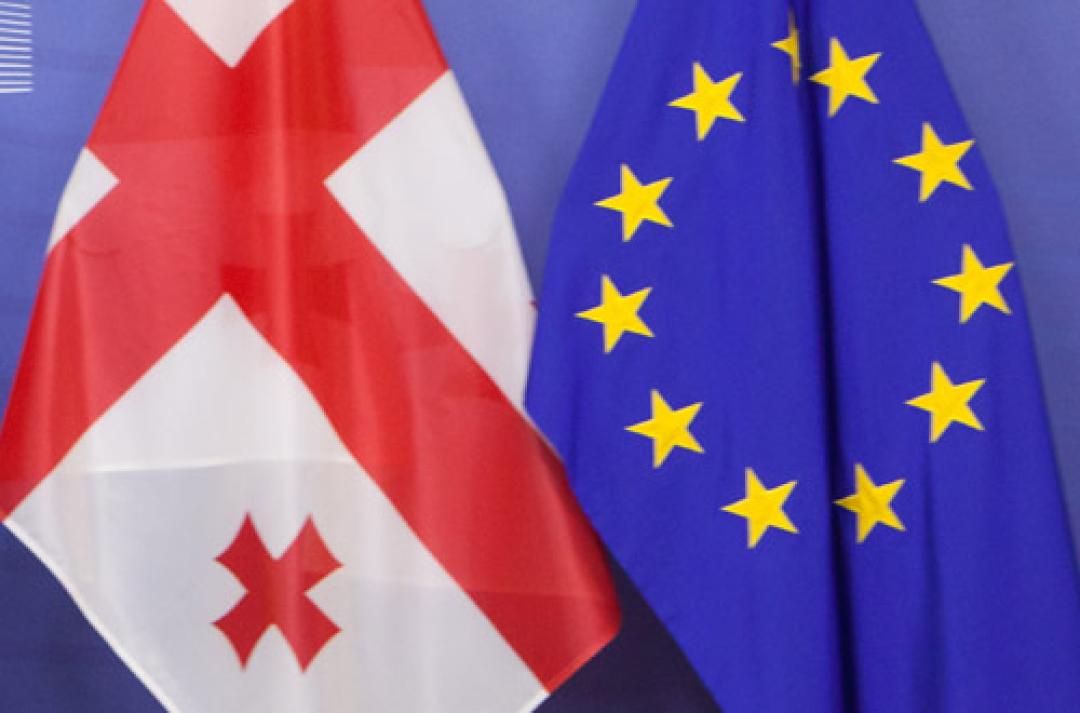
Georgia and the Impact of EU Candidate Status on Regional Geopolitics

As Georgia progresses into the EU, regional geopolitics remain complicated. Tbilisi prefers a careful approach towards Russia and the war in Ukraine, but Moscow is unimpressed and strongly committed to its imperial project, which also involves at least a neutral Georgia.
On December 14, the European Council reached a landmark decision, awarding Georgia the status of an EU candidate country. This move is particularly significant for Georgia's predominantly pro-Western populace, affirming the nation's commitment to a Western-oriented path.Georgia's EU aspirations began following the collapse of the Soviet Union, drawing inspiration from historical ties dating back to the medieval era and the period of short independence in 1918-1921 before the Bolshevik takeover. For Georgians, therefore, achieving candidate status is perceived as just and well-deserved recognition.
The status also largely dispels earlier suggestions that the EU was neglecting Georgia, particularly in 2022, when it was only given a European perspective. Despite occasional troubles in bilateral relations, the bond between Brussels and Tbilisi remains strong, with greater potential ahead.Nevertheless, differences in bilateral relations will likely resurface, particularly regarding the implementation of necessary reforms – 9 recommendations Brussels thinks the Georgian side still has to implement in order to pave the way for accession talks.
In a larger geopolitical context, this decision is a significant strategic move by the EU in the tug-of-war for influence in the wider Black Sea region. Here, Russia seeks to reestablish its territorial control, i.e., build a territorial empire, while the EU and the West aim to counter this ambition. Neglecting to integrate Georgia could have undermined the EU's influence in the South Caucasus, especially amid the shifting balance in the region, where Armenia seems to be building a multi-vector foreign policy in order to decrease its dependence on Moscow. For Yerevan, the EU is one of the actors to fulfill this goal.
The implications of EU candidate status for Georgia’s relations with Russia could be wide-ranging. Moscow, traditionally more concerned with NATO's expansion, is relatively silent about the EU's enlargement. Outwardly, it might indeed be so, but recent history shows that, in the Kremlin’s perception, the EU is as dangerous geopolitically as NATO. Indeed, it was the EU's relationship with Ukraine in 2013-2014, rather than NATO's expansion, that served as a driver in Russia's decision to annex the Crimean peninsula. Occasional statements by Russian officials also show that the EU, much like NATO, is viewed unfavorably in Moscow, placing Georgia in a delicate position and raising the need to balance its foreign policy given the fact that military support from the West may not be readily forthcoming in times of crisis.
Despite the EU’s progress in the South Caucasus, Russia, however, remains a major power that still possesses enough military and economic resources to pressure each of the region’s three countries into cooperation. This is unlikely to change in the foreseeable future, regardless of how the war progresses in Ukraine. Yet, the EU enlargement also highlights what seems to be Russia’s managed decline along its southern border, from the Black Sea to Central Asia’s borders with China. This trend was evident before 2022 but accelerated with Russia’s invasion of Ukraine and the fall of Nagorno-Karabakh, when Russian troops abstained from an active role on the ground. This signals a major shift: Russia has now increasingly turned into one of several major actors.
The EU candidate status does not automatically resolve all issues between Georgia and the EU. One such question is the alignment of foreign policies. It is highly likely that Georgia will continue a multi-vector foreign policy, which was evidenced in July when Georgia strengthened ties with China through a strategic cooperation agreement. Additionally, Georgia aims to maintain a cautious relationship with Russia and increase its engagement with Middle Eastern powers. This fits into how countries in the EU’s periphery behave – most of them pursue multiple foreign policy choices. Yet it isalso a peculiar Georgian response to its geographic position and its difficult ties with Russia amid the lack of military support from the West.
Politically, the EU candidate status is set to reshape Georgia's internal dynamics. The EU's decision is likely to further weaken the opposition by bolstering the ruling party's (Georgian Dream – GD) position. Recent polls show a significant drop in support for the main opposition party, the United National Movement (UNM), while the ruling party continues to dominate despite limited public support.
This political landscape, characterized by a lack of strong opposition leadership and a neutral electorate, is expected to persist in the lead-up to the 2024 parliamentary elections. The growing dominance of GD poses numerous questions about how political life in Georgia will develop beyond 2024. It is clear that internal politics are being transformed;the older generation of politicians has been gradually leaving the political scene, and there is a growing need and room for new political figures to emerge.
The granting of candidate status therefore has both internal and external dimensions for Georgia. The country is now strongly set on its Western course, but that does not mean that Tbilisi will abstain from involving itself with other powers. This nascent multi-aligned or multi-vector foreign policy approach is fashionable nowadays in the Middle East and most of the regional countries. It does, however, cause tensions within Georgia and the country’s relations with the EU, which has grown increasingly wary of China and other Eurasian powers. Balancing will remain a hallmark of Georgia’s political life.
Emil Avdaliani is a professor of international relations at European University in Tbilisi, Georgia, and a scholar of silk roads.
See Also


From Neorealism to Neoliberalism: Armenia’s Strategic Pivot in Foreign Policy After the Nagorno-Karabakh Conflict

Georgia and Russia: New Turn in Bilateral Relations

3+3 Initiative as a New Order in the South Caucasus

Economic Cooperation Between Armenia and Georgia: Potential and Challenges Ahead

